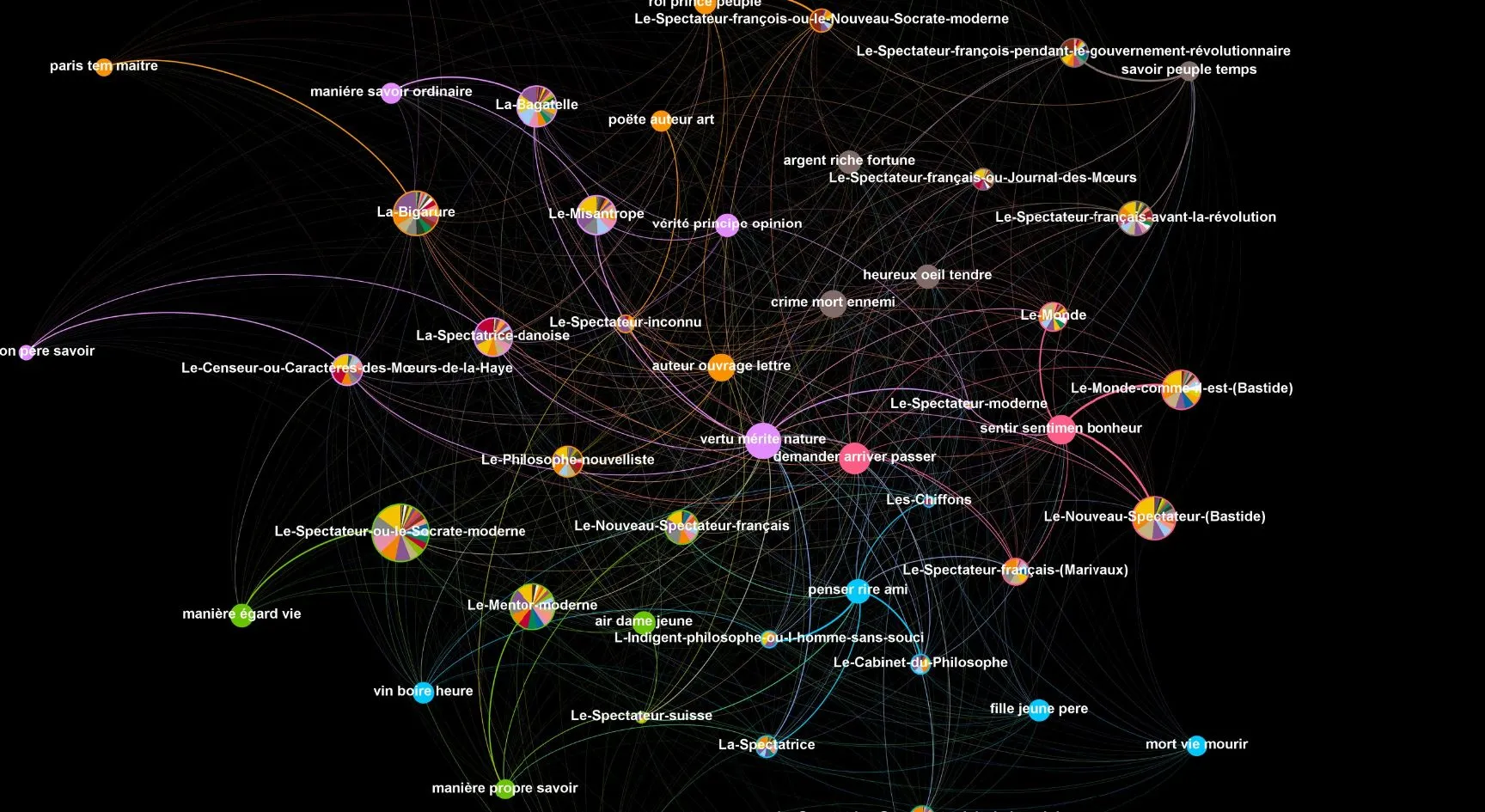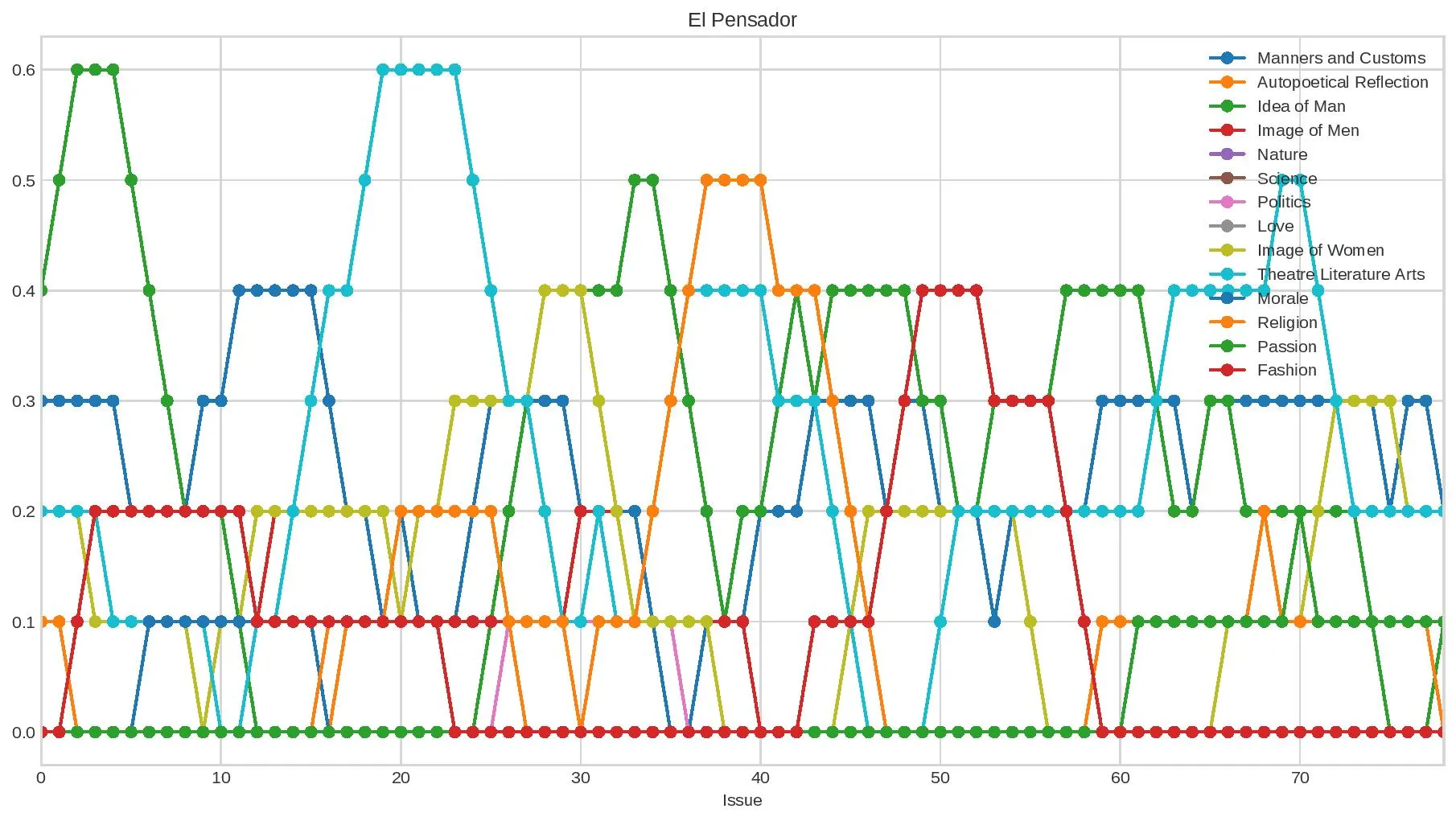
Distant Spectators: Distant Reading for Periodicals of the Enlightenment (DiSpecs)
- Hosting organisations
- Zentrum für Informationsmodellierung - Austrian Centre for Digital Humanities (ZIM-ACDH), Institut für Romanistik, TU Graz - Know-Center, and TU Graz - Institute of Interactive Systems and Data Science
- Responsible persons
- Bernhard Geiger, Elisabeth Hobisch, Philipp Koncar, and Martina Scholger
- Start
- End
The enlightened Spectator press of the 18th century constitutes an important cultural heritage of the world. It complied with the democratic ideal of disseminating cultural and moral issues, techniques and practices within a non-academic audience, popularizing enlightened ideas, such as cosmopolitanism, tolerance, intellectual criticism, self-reflection and social responsibility. Based on the existing text corpus of the digital scholarly edition of the Spectators ( https://gams.uni-graz.at/spectators ), this cooperation between the Institute for Interactive Systems and Data Science, Graz University of Technology, the Know-Center GmbH Graz, and the Centre for Information Modelling - Austrian Centre for Digital Humanities (ZIM-ACDH) and the Institute for Romance Studies, both at the University of Graz, aims at investigating this multilingual corpus with computer-aided methods of quantitative text-analysis.
In the course of DiSpecs, it is expected that insights about the shift of topics over time and geographic distance as well as about stylistic features will allow for the formulation of statements about prominent trends and zeitgeist in the 18th century periodicals. Another focus is on the transnational transfer and development of this literary genre, while keeping geographical, cultural and temporal specifics under constant consideration.
Research Questions
The main objective of DiSpecs is to investigate how and which quantitative methods prove useful and efficient for the analysis of this multilingual corpus from the 18th century. This will be analysed by using these methods to answer five specific research questions:
- How have topics and narrative forms changed over time and space?
- What are the stylistic peculiarities of the Spectators? What was en vogue at that time?
- Can variations in language style deliver statements about different authors? Will we be able to identify and differentiate anonymous authors?
- How can positive and negative expressions give insight into the overall attitude of a periodical?
Methods
To answer these questions, a range of methods from statistical analysis, natural language processing, text mining, machine learning and network analysis will be applied which we subsum under the term distant reading.
- For a content-related analysis topic modeling is used to reveal topics in the Spectators texts.
- Stylometric procedures will be applied to detect stylistic characteristics in the texts to determine similarities and differences of the discourses as well as anonymous editors of the periodicals.
- Sentiment Analysis will be utilized to discern distinct literary stylistic means to convey positive and negative emotions expressed in the texts.
- Network analysis is used to represent relations between authors, between topics and between periodicals in a graph.
Current project team
- Bernhard Geiger (Know-Center Graz)
- Christina Glatz (Institute for Romance Studies, University of Graz)
- Denis Helic (Institute of Interactive Systems and Data Science, Graz University of Technology)
- Elisabeth Hobisch (Institute for Romance Studies, University of Graz)
- Philipp Koncar (Institute of Interactive Systems and Data Science, Graz University of Technology)
- Sanja Saric (Centre for Information Modelling - Austrian Centre for Digital Humanities, University of Graz)
- Martina Scholger (Centre for Information Modelling - Austrian Centre for Digital Humanities, University of Graz)
- Yvonne Völkl (Institute for Romance Studies, University of Graz)
Former project members
- Alexandra Fuchs (Institute for Romance Studies, University of Graz)
- Jacqueline More (Centre for Information Modelling - Austrian Centre for Digital Humanities, University of Graz)
